The CMP Review — Week of January 27
January 27, 2025
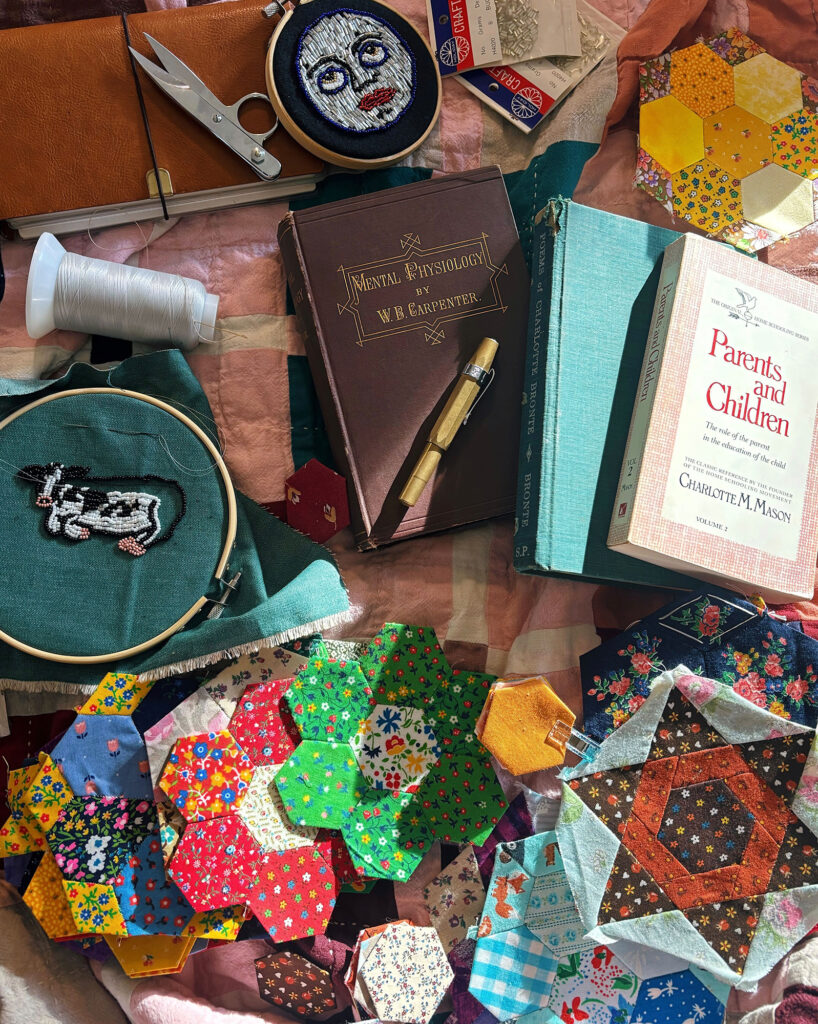
❝
There is no sadder sight in life than a mother, who has so used herself up in her children’s childhood, that she has nothing to give them in their youth.
So many mothers say, “I simply have no time for myself!” “I never read a book!” Or else, “I don’t think it is right to think of myself!” They not only starve their minds, but they do it deliberately, and with a sense of self-sacrifice which seems to supply ample justification.
The only way to do it is to be so strongly impressed with the necessity for growing herself that she herself makes it a real object in life.
Mother must have time to herself. And we must not say “I cannot.” Can any of us say till we have tried, not for one week, but for one whole year, day after day, that we “cannot” get one half-hour out of the twenty-four for “Mother Culture”?—one half-hour in which we can read, think, or “remember.”
A brisk walk will help. But, if we would do our best for our children, grow we must; and on our power of growth surely depends, not only our future happiness, but our future usefulness.
Is there, then, not need for more “Mother Culture”?
❞
— PR3, pp. 93-95
@tessakeath
January 28, 2025
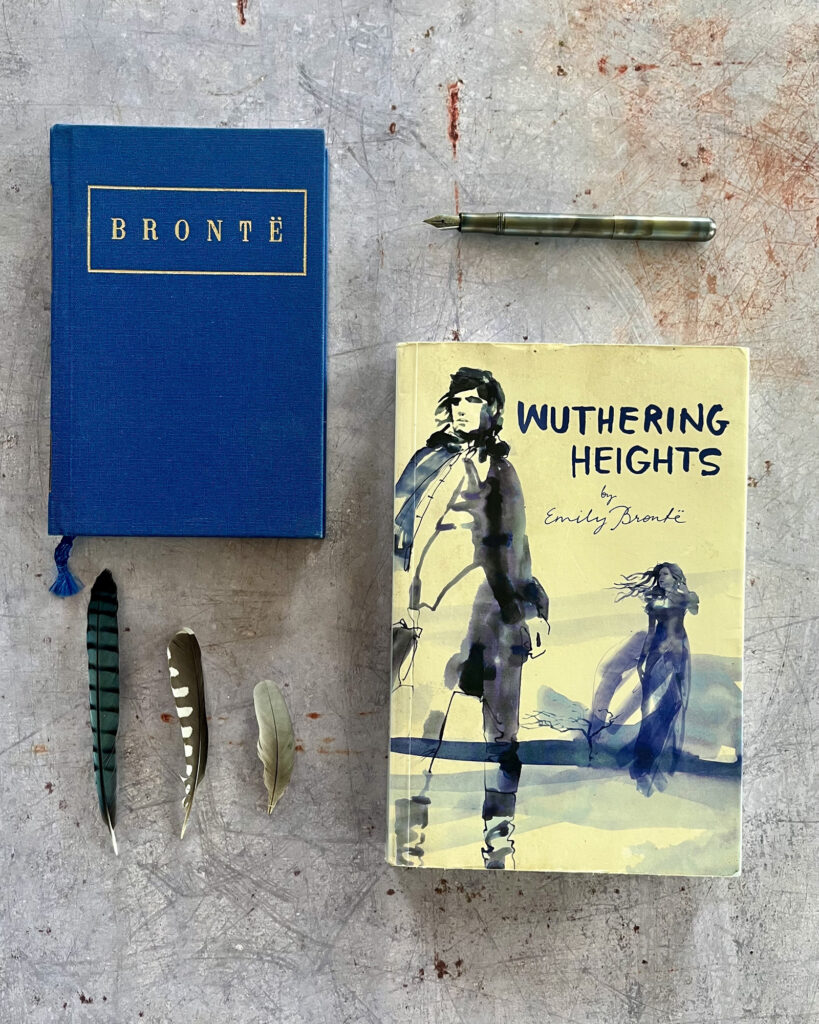
The Brontë sisters—can one even have a favorite?! There’s the eager and restless Charlotte, introverted yet proud Emily, and shy gentle Anne.
Come learn more about the life of the women behind some of the greatest novels and poetry the world has ever seen in this week’s article, “The Brontës.” Read it on our website or listen to the mellifluous voice of Leah Boden read it to you on our podcast. You can read or hear it here.
@rbaburina
January 29, 2025
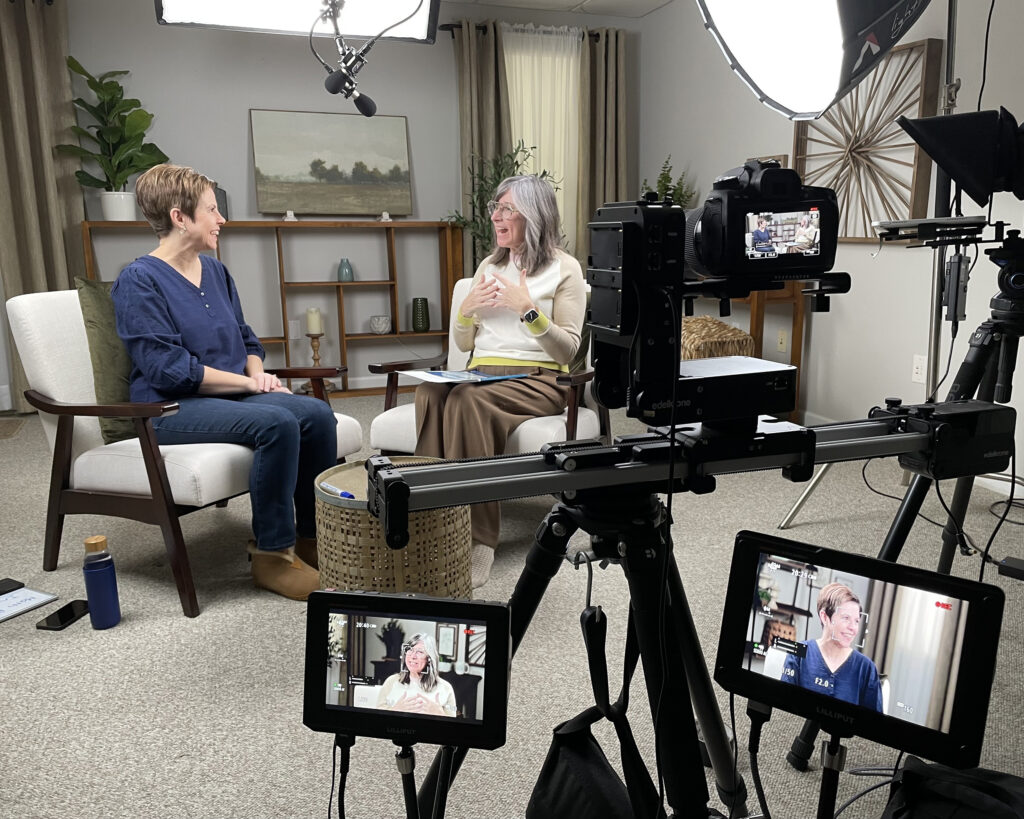
Behind the scenes Simply Charlotte Mason recording studio with Sonya Shafer. Not shown is the videographer, Sonya’s husband, John.
They always make me feel right at home. We recorded a handful of videos that I can’t wait to share with you.
@rbaburina
January 30, 2025
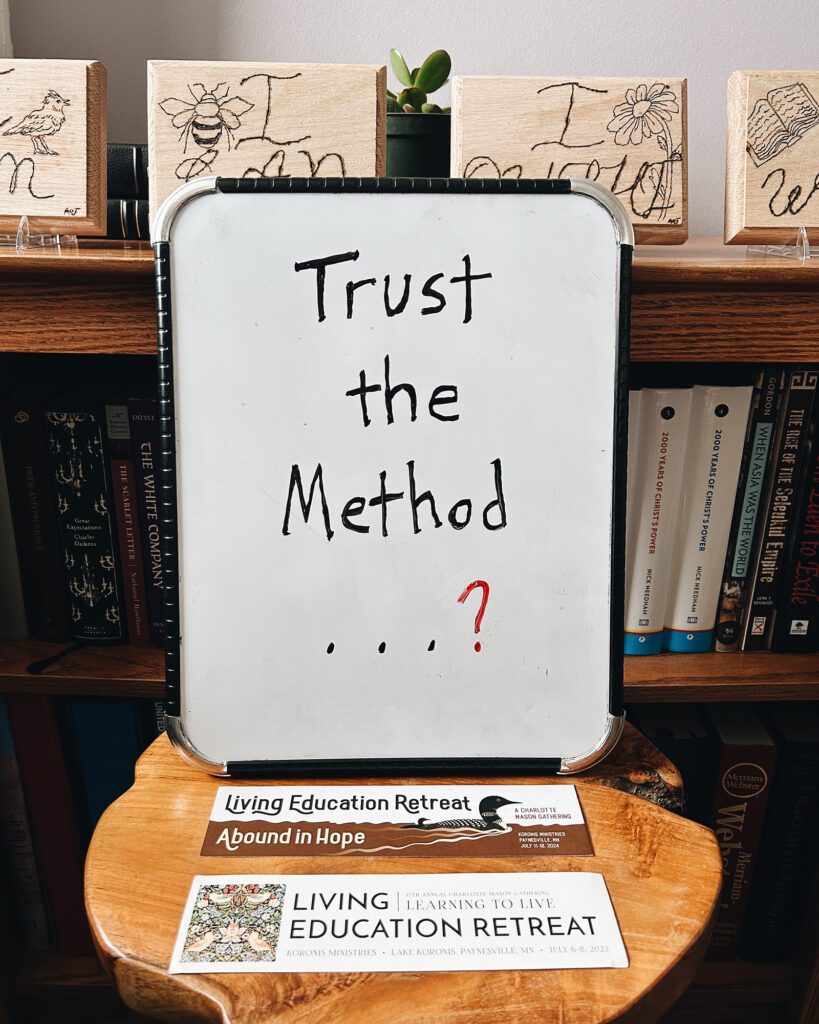
Homeschooling is a journey where we repeatedly face some of our greatest hopes and fears. It’s a journey where the destination is not always clear, the path is often uncertain, and even our current location is sometimes in doubt. We all want assurance that we are going to the right place and going about it the right way. At least I’ve wanted assurance!
In the face of weakness and doubt, sometimes we are told to “trust the method.” The idea is to rely on the Charlotte Mason method and not our own intuition or ideas. It’s advice that I have heard many times over the years, reassuring advice to walk by faith.
Sometimes I’ve wondered if it is advice that Charlotte Mason herself would give. In fact I’ve often wondered how Miss Mason would advise home educators in the 21st century, given our many challenges new and old. And I’ve put a lot of thought into supporting and assisting other home educators when they’ve faced these challenges.
At the Living Education Retreat in July, I plan to share my conclusions. My main talk is entitled “Trusting the Method: Faith, Reason, and Responsibility in the Charlotte Mason Way.” I’m looking forward to reasoning with attendees at wonderful Lake Koronis and hearing from great speakers like Nancy Kelly, Leah Boden, and Amy Fiedler. It will be a time of renewal and growth. Will I see you there?
Registration is now open here.
@artmiddlekauff
January 31, 2025
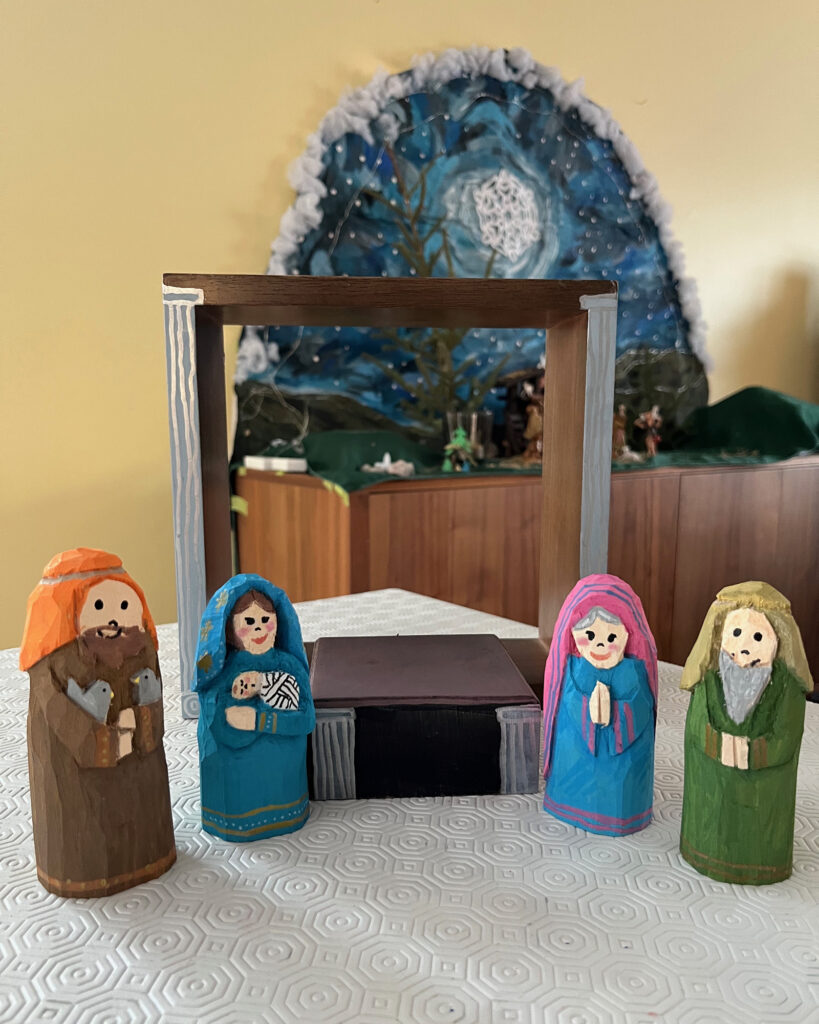
Serafina was asked to create this diorama of the story of the presentation of Jesus at the temple. A pre-school catechism program at our church uses these scenes with the children to teach them about various Bible stories through the year.
She carved the wooden figures of Joseph (with a pair of birds for the sacrificial offering), Mary holding little baby Jesus, Simeon, and Anna.
I feel like it is a great use of her wood carving and painting and general creative skills, in order to help these stories come alive for the little ones in our church. And it is a concrete way for her to volunteer her time and talent.
I feel like if we think outside the box, our children have many ways they can bless and serve others!
@antonella.f.greco
February 1, 2025
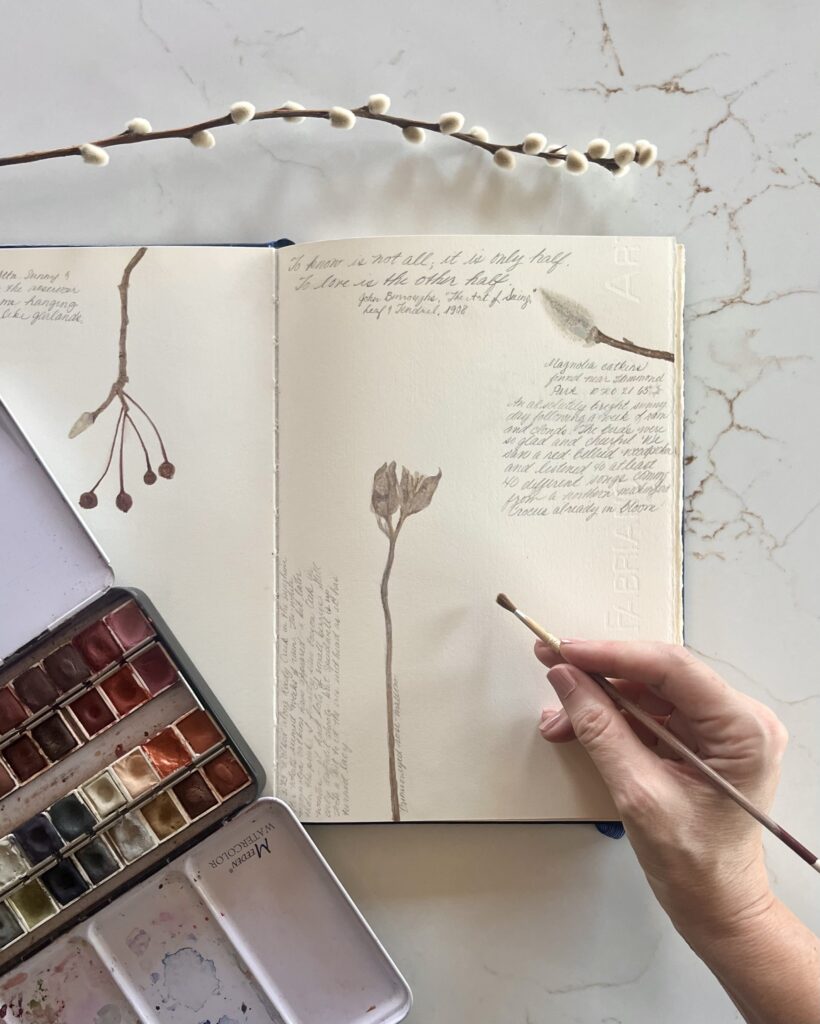
February is definitely the month for catkins here in NE Tennessee.
I began nature journaling when my children were young—they’re currently 22 and 20—and followed the Parents’ Review advice to leave blank pages in-between brush drawings to capture certain specimens throughout the seasons. Those blank pages drove me nuts, so I began dividing each 2-page spread into ten-day sections in order to better organize my nature journal to my personality. This has meant there’s room to come back to the same dates yearly to add another specimen. The size of my journal means it will hold approximately 5–6 years worth of entries and become a better record of my personal observations by keeping them in one place. I’ve since learned this type of nature journal is called a “perpetual journal.” While perpetual journals are usually broken down into weekly increments, mine is longer in order to fit the year according to the page count of my particular watercolor journal.
How do you organize your nature journal?
@rbaburina
February 2, 2025
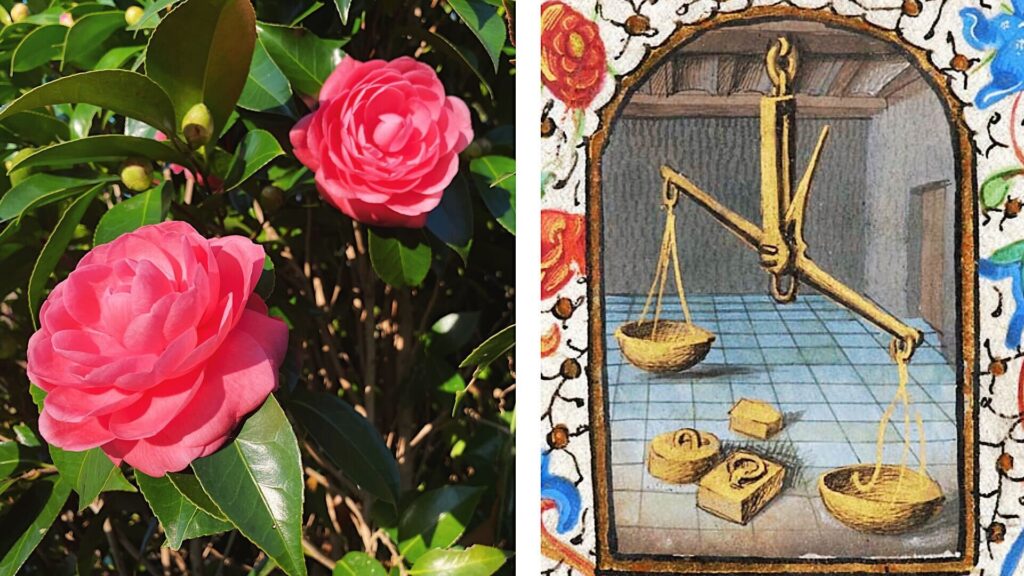
In Numbers 27 the daughters of Zelophehad came to Moses crying out for justice. “Our father died in the wilderness,” they pleaded; “Why should the name of our father be removed from among his family because he had no son? Give us a possession among our father’s brothers.”
Moses brought their case before the Lord and then gave them an inheritance.
Centuries later in a situation recorded only by Luke, a man came to Jesus crying out for justice. “Teacher, tell my brother to divide the inheritance with me.”
Jesus’ response was dramatically different from that of Moses. “Jesus rejected the role of judge or divider of inheritances, even though Moses had handled a similar request” explains R. Alan Culpepper. “Jesus rejects the man’s request because he will not participate in satisfying the greed that he senses had prompted it. Instead of helping the man to get his inheritance, he points the man to a different understanding of life. Life is not to be valued or measured in terms of wealth or possessions. One may gain the whole world and lose one’s soul… On the other hand, true blessing comes to those who hear the Word of God and do it.”
Charlotte Mason brings the scene to life in her poem on this passage. Read or hear it here, along with commentary by J. R. Dummelow.
@artmiddlekauff